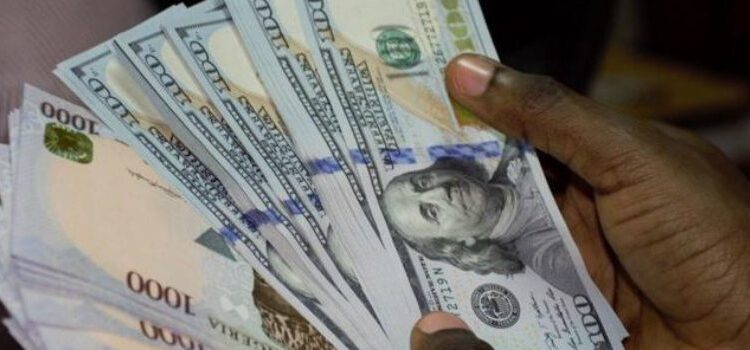
The uncertainty around who wins the forthcoming presidential vote in Nigeria is not essentially different from the one around whether any of the top three contenders have definite, elaborate plans to fix the country’s problematic foreign exchange system.
As their manifestos show, the plans of the All Progressive Congress (APC), the Labour Party (LP) and the Peoples Democratic Party (PDP) for foreign exchange management are at best a muddle of promises with no clear roadmap to achieve them.
Africa’s biggest democracy will be choosing a new leader on 25 February. Last year, its currency ranked among the world’s worst-performing, outdoing only Ghana’s cedi and Sri Lanka’s rupee.
Naira’s black market rate, the basis of that verdict, had fallen by 37 per cent as of that date compared to only 4 per cent for the official rate.
The parallel market is the most accessible market in the country for those seeking forex, even though the government has labelled it “illegal”. It offers the most market-driven rate, meeting the dollar needs of several manufacturers and users unable to access the currency at the spot market.
The value of the naira is increasingly being eroded, as its official rate lost more than half its value against the dollar since President Muhammadu Buhari took office in 2015.
International investors held only 16 per cent of the shares listed on the Nigerian Exchange in 2022, down from 58 per cent in 2014, a signal that the dollar flow into the market is fast drying up.
“No investor’s going to want to buy into a market where you can’t sell stock and get your money out,” Steve Pollicino of U.S. brokerage Auerbach Grayson told Reuters.
The news agency said Mr Pollicino believes overhauling the Nigerian foreign exchange market is the foremost worry of international investors. One big ramification of the crunch is the ordeal it creates for manufacturers wanting to import raw materials but can’t access the greenback at the I&E Forex Window.
The dollar exchanged for N461.67 at that market and, according to parallel market rates tracker @naira.rates, N746.71 on the street on 14 February, leaving a 61.7 per cent spread, a gulf that has been a key driver of inflation.
Whoever wins the next election will have exchange rate volatility to grapple with as much as a dollar crunch that is stoking the price levels of imported goods.
That is not to mention the urgency of courting back myriad foreign portfolio investors who have been deserting the stock market in droves since the dollar scarcity came to a head shortly after Covid-19 broke out.
Bola Tinubu (APC)
APC’s presidential hopeful Bola Ahmed Tinubu is not definite on whether he will adopt a foreign exchange market where the forces of demand and supply drive the movement of exchange rate if voted into power.
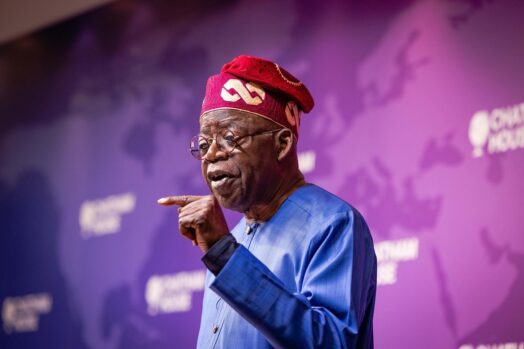
Nevertheless, it is safe he will rather sustain the current model whereby the government controls the official forex market known as the I&E Forex Window or spot market.
“The exchange rate influences the costs of imports, competitiveness of exports, and net capital flows among other things. It cannot be ignored nor left to the vagaries of an unrestrained market,” Mr Tinubu’s manifesto says without stating the direction his government will take on this.
Should the former Lagos State governor opt for a government-controlled currency market, the naira-to-dollar exchange rate of the official market will likely continue to be unreliable, failing to reflect the true picture of the dynamics of the market.
The APC admits in the manifesto that Nigeria’s multiple foreign exchange regime is ineffective and dysfunctional, and acknowledges the implications of that for arbitrage and currency speculation.
“To ensure that exchange rate policy harmonises with our goals of optimal growth and job creation driven by industrial, agricultural and infrastructural expansion, we will work with the Central Bank and the financial sector to carefully review and better optimise the exchange rate regime,” the document says.
No mention is made of the shape the planned collaboration with the central bank and the financial sector will take.
The manifesto says “Our history shows that the oil and gas sector is not the answer to our nation’s economic problems.” Yet it goes on to say that the same sector “must play the lead role in generating the foreign currency revenues needed to help fund the nation’s twin industrialisation and infrastructural drives.”
According to the document, Mr Tinubu plans to cut gas flares in order to boost oil and gas earnings from export to the EU as the Russia-Ukraine rages. He intends to reduce foreign debt and use it as a tool to “protect our exchange rate, guard against inflation and preserve foreign currency reserves.”
The manifesto says “Our administration will engage in extraordinary prudence in contracting debt in foreign currency. Our policy will be such that new foreign currency debt obligations will be linked to projects that generate cash flows from which the debt can be repaid.”
On Import Substitution, Mr Tinubu hopes to wean Nigeria off its dependence on imported goods by discouraging the importation of non-essential products and imposing luxury taxes, higher processing fees and higher tariffs.
He is looking to incentivise foreign investors that establish manufacturing plants in the country by way of rebates and tax credits.
“We shall also enact new policies to exploit the framework provided by the African Continental Free Trade Agreement (AfCTA) to further boost domestic manufacturing and production,” the manifesto says.
Peter Obi (Labour Party)
Unlike its APC rival, Peter Obi of the Labour Party is pro-liberalisation of the foreign exchange market and has stated his ambition to “dismantle the opaque multiple exchange rate regime which effectively subsidises a few privileged persons, whilst depriving government of badly needed revenues.”
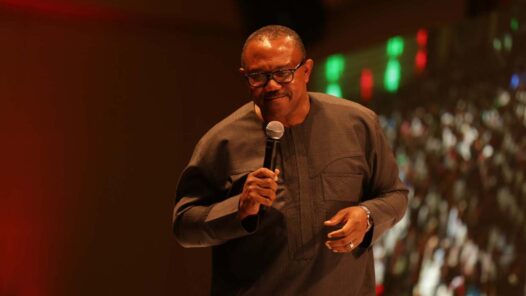
Great as that sounds, the former Anambra State government did not give the layout of how he will go about this in his manifesto.
“We will also seek a simplification of the exchange rate regime, whilst seeking to also boost the supply side, rather than continuing to concentrate exclusively on demand management,” the manifesto states.
There is no part of the document highlighting the specific actions Mr Obi will take to improve the dollar supply. The two broad and brief ideas mentioned above are the only foreign exchange plans mentioned by Mr Obi throughout the document.
On Import Substitution, Mr Obi came into the warm-up stage of the election, riding on the mantra of moving “Nigeria from consumption to production,” which is number two on his 7-point agenda. He hopes to achieve that by expanding the $440.8 billion economy through “agrarian revolution and export-oriented industrialisation.”
His manifesto says scaling up exports will be achieved by cultivating strong ties between Nigerian and overseas markets for its goods. It will also involve establishing structures including strategic trade and investment missions and in-country trade missions aimed at creating markets for made-in-Nigeria goods.
“We shall embrace political entrepreneurialism to directly lead missions to top Original Equipment Manufacturers (OEMs) and leading Global Value Chain headquarters, lobbying and granting them all the necessary incentives to expand their production and manufacturing value chains to our country to link us to the important income-growing and employment-generating global value chains,” the manifesto says.
The Labour Party promised to incentivise companies and industries that take clear action to switch from fossil fuels to clean energy “not only for local consumption but also for export.” Among its agenda is the need to cut steep trade costs resulting from high port, border and road logistics spending, which it recognised as a barrier to a competitive business environment.
“We will apply entrepreneurial governance to dismantle the impediments to free trade and ease of doing business,” the Labour Party said.
Mr Obi also expects to boost quality assurance in a bid to ensure the standards of Nigerian products position it to gain traction in the African Continental Free Trade Area.
“We will incentivize the mid-stream segment of the petroleum sector by facilitating gas processing plants and privately-owned small and medium scale boutique refineries, with a view to reducing importation of refined petroleum products, and eliminating the petrol subsidy regime, which has become a huge burden on the budget,” the manifesto says.
Atiku Abubakar (PDP)
Atiku Abubakar, who oversaw the privatisation of state assets as Nigeria’s vice president in this republic’s first eight years, is known as an advocate of liberalisation and the free market.
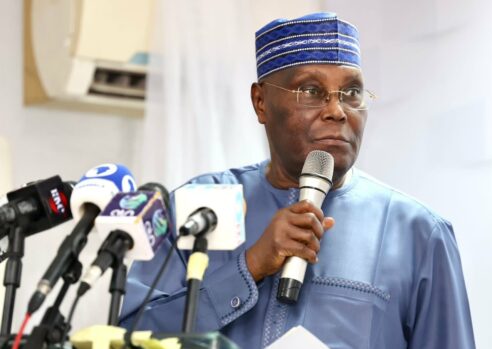
His manifesto notes that the PDP will give the market greater freedom in determining prices if voted into power.
“This way we shall eliminate the persistent price distortions occasioned by current interventionist exchange rate management policy. Government intervention, where absolutely necessary, will be done responsibly and judiciously,” the document says.
The manifesto further says “Monetary and fiscal policies shall ensure low inflation rate, stable exchange rate and interest rates that will be supportive of businesses’ quest for credit.” Yet, it is silent on the game plan that will accomplish this.
On Import Substitution, Atiku expects processed goods to constitute 25-40 per cent of total exports, hoping these to include processed agricultural goods, manufactures, gas products and refined petroleum.
The manifesto states that support will be given through the Nigerian Export Promotion Council and Nigerian Investment Promotion Commission.
The PDP candidate hopes to review the efficacy and accessibility of the non-oil export simulation facility and strengthen the Nigeria Export Processing Zones Authority in setting up special economic zones across the six geopolitical zones.
He also intends to review “import duty on raw materials that are available in the country and on imported machinery for local production.”
The manifesto says there is a plan to cut food imports as a share of total imports to 5-10 per cent from 20 per cent.
Rabiu Musa Kwankwaso
Rabiu Kwankwaso proposes to address the concerns around achieving a fixed exchange rate, independent monetary policy, and free movement of capital.
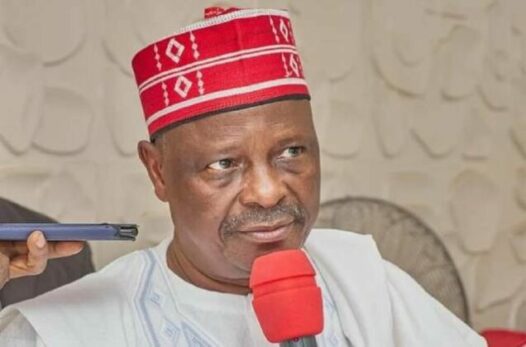
The proposed solutions include adopting a disciplined, managed float exchange rate regime with some level of capital controls.
READ ALSO: ANALYSIS: NigeriaDecides2023: Inside Atiku, Obi, Tinubu’s agenda
The former governor of Kano State also suggested finding an exchange rate system that encourages exports, discourages imports, and reduces the need for violent adjustments to stabilize the Naira.
He also proposed that the CBN opt for inflation targeting to achieve single-digit inflation, manage monetary policy rates to achieve this, and focus on its core mandate of managing inflation and financial system stability.
Support PREMIUM TIMES’ journalism of integrity and credibility
Good journalism costs a lot of money. Yet only good journalism can ensure the possibility of a good society, an accountable democracy, and a transparent government.
For continued free access to the best investigative journalism in the country we ask you to consider making a modest support to this noble endeavour.
By contributing to PREMIUM TIMES, you are helping to sustain a journalism of relevance and ensuring it remains free and available to all.
TEXT AD: Call Willie – +2348098788999







